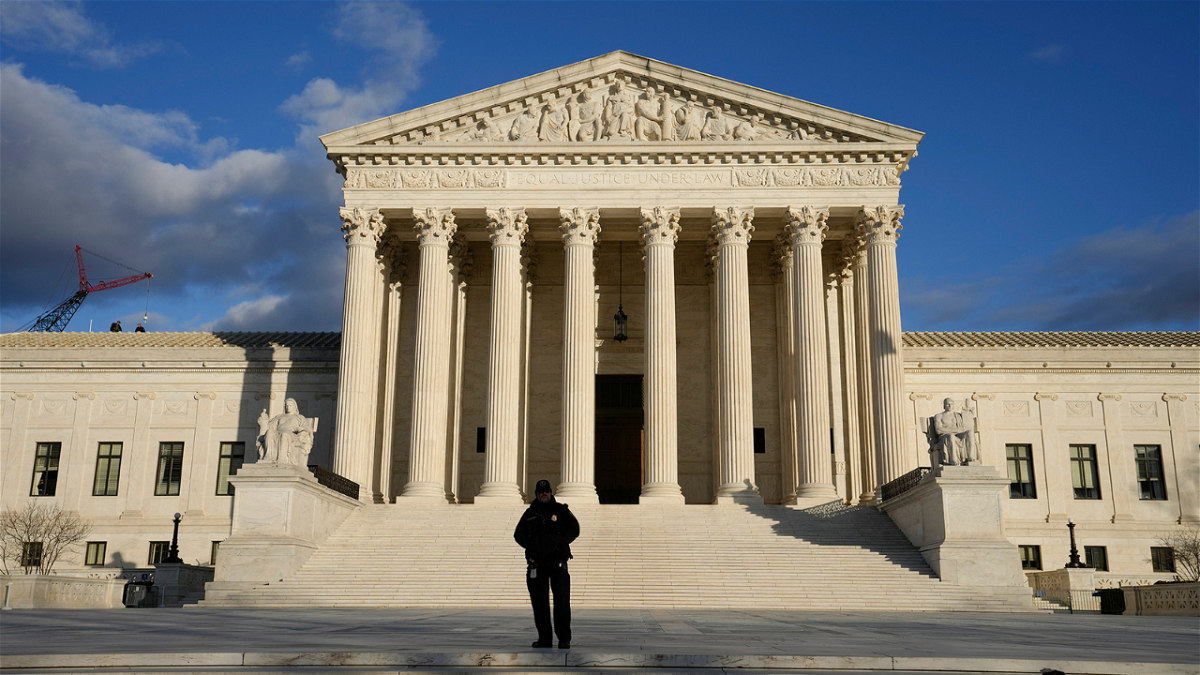Supreme Court delays considering Florida and Texas laws that force social media platforms to host content

Originally Published: 23 JAN 23 12:23 ET
By Brian Fung, CNN
(CNN) -- A high-stakes legal battle over social media moderation remains in limbo after the Supreme Court on Monday delayed saying whether it will hear three cases that could decide the constitutionality of Texas and Florida laws letting users sue online platforms for alleged political censorship.
The cases -- viewed as a bellwether for internet speech and private rights in the face of government power -- may now not be heard until the next term and closer to the heat of the 2024 US presidential election. Both laws remain blocked in the meantime.
Several Supreme Court justices have hinted at their interest in reviewing the matter, describing the underlying issues as having "great importance" in an era where social media platforms can wield enormous influence on political dialogue.
But despite evaluating the cases in recent weeks, the court on Monday did not announce whether it would or would not consider them. Instead, it asked the Justice Department to submit the Biden administration's views on the fight -- effectively postponing any deliberations for the foreseeable future.
The request means a resolution in the pending cases is unlikely anytime soon, leaving in doubt whether the court could rule on the power of state governments to force private companies to host speech on their websites they would rather remove.
"I think at minimum this means the Texas and Florida cases won't be heard this spring," tweeted Daphne Keller, a lecturer at Stanford Law School and an expert on digital platform regulation.
It's the highest-stakes court battle yet for US social media giants following years of scrutiny by politicians who have criticized the way content moderation decisions have influenced political discourse.
If the court ultimately hears the cases, the justices' decisions could lead to the most consequential changes for social media platforms since their creation. The outcome could potentially determine not only what social media users see on major digital platforms, but also the freedoms that virtually all businesses enjoy in relation to the government.
The court's delay comes as social media's handling of conservative content has returned to the forefront of US politics, with Meta poised to make a decision on whether to allow former President Donald Trump back onto its platform and as Twitter, under new owner Elon Musk, has moved to restore the accounts of some conservatives that had been previously sanctioned for violating the platform's rules.
In 2021, Texas and Florida passed separate laws that made it illegal for tech platforms to block or demote content that might otherwise run afoul of their terms of service, allowing individual users in some situations to sue the companies for alleged political censorship. The Texas law, for example, makes it illegal to "block, ban, remove, deplatform, demonetize, de-boost, restrict, deny equal access or visibility to, or otherwise discriminate against expression."
Both laws have temporarily been blocked from going into effect pending litigation; a federal appeals court has ruled that the Florida law is unconstitutional, while a separate appellate panel has said the Texas law is constitutional.
State officials have claimed the legislation protects online speech by ensuring that large technology companies cannot silence conservative viewpoints through their content moderation efforts.
Tech industry groups challenged the legislation, arguing social media companies are private entities that can moderate their platforms as they see fit, and that attempts by state officials to restrict that freedom infringes on the First Amendment. Defenders of the tech industry have said that the language of the legislation could require platforms to host spam, pornography and other legal but objectionable content and to give it the same treatment as any other user content, making websites unusable.
Outside legal experts have said a ruling in favor of the states could significantly undermine a longstanding precedent against so-called government-compelled speech. For decades, the compelled speech doctrine has held as unconstitutional laws that, for example, force schoolchildren to recite the Pledge of Allegiance or that require newspapers to air the views of all political candidates.
The-CNN-Wire
™ & © 2023 Cable News Network, Inc., a Warner Bros. Discovery Company. All rights reserved.